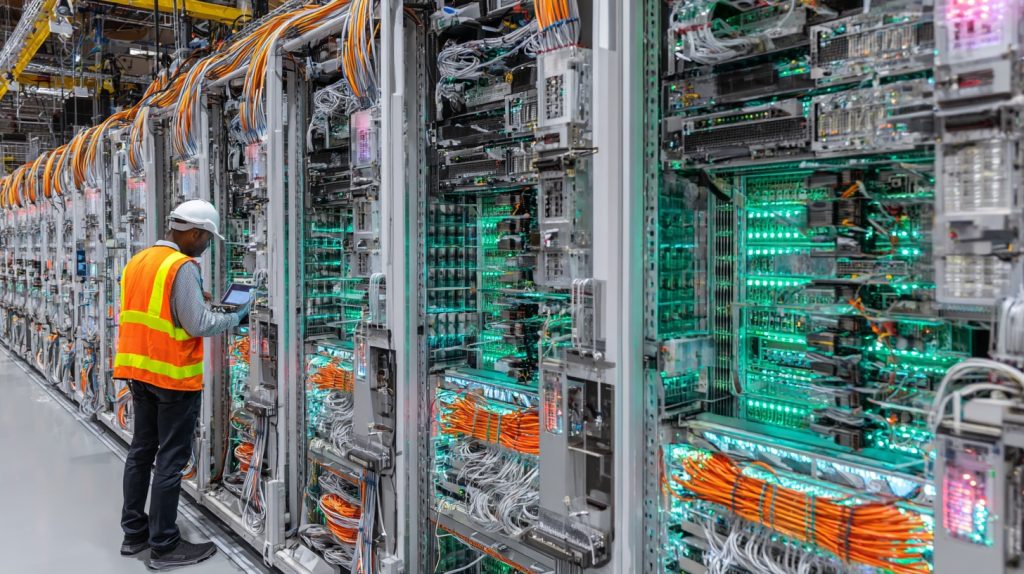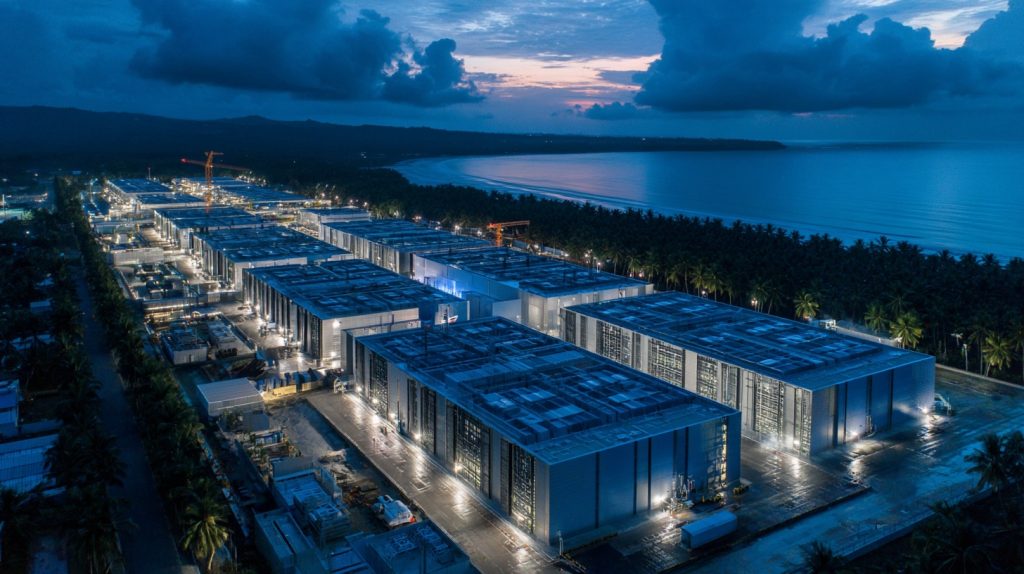
Table of Contents
Google $15 billion AI investment India represents a seismic shift in the global AI infrastructure race. The tech giant announced its largest international commitment to date, partnering with AdaniConneX and Bharti Airtel to construct a gigawatt-scale AI data center hub in Visakhapatnam. This isn’t just about servers and semiconductors. It’s about rewriting the geopolitical map of artificial intelligence.
The announcement, made during CEO Sundar Pichai’s visit to New Delhi, signals Google’s recognition that India has become indispensable to the future of AI development. With its combination of technical talent, democratic governance, and strategic location, India offers what few other nations can: a stable, scalable alternative to China’s AI dominance.
Why Google $15 Billion AI Investment India Changes Everything
The scale alone is staggering. Google’s commitment dwarfs previous tech investments in the region and positions India as a primary node in the company’s global AI infrastructure. The partnership with AdaniConneX, the Adani Group’s data center joint venture, and Bharti Airtel, one of India’s telecommunications leaders, creates a formidable consortium capable of delivering enterprise-grade AI services across South Asia and beyond.
According to Reuters, the facility will eventually consume more than one gigawatt of power, making it one of the largest AI-focused data centers globally. That’s enough electricity to power a small city, all dedicated to training large language models, running inference workloads, and supporting Google’s expanding AI product suite.
But the implications stretch far beyond technical specifications. This investment arrives at a moment when democratic nations are scrambling to reduce dependence on authoritarian regimes for critical technology infrastructure. India, with its robust legal frameworks and alignment with Western democratic values, offers a compelling alternative.
The Geopolitical Stakes of AI Infrastructure
Google’s move reflects a broader trend: AI infrastructure is becoming as strategically important as oil reserves or semiconductor fabs. Nations that control the computational power to train and deploy advanced AI models will wield enormous economic and political influence in the coming decades.
China has spent years building its AI capabilities, often with state subsidies and minimal regulatory oversight. The United States has responded with export controls on advanced chips and increased domestic investment. Now, India is emerging as a third pole, one that shares democratic governance structures with the West but offers cost advantages and a massive domestic market.
The Google $15 billion AI investment India also addresses a critical vulnerability in global supply chains. By diversifying AI infrastructure across multiple continents and political systems, tech companies reduce their exposure to geopolitical shocks. If tensions escalate in East Asia or regulatory crackdowns intensify in China, having robust AI capabilities in India provides strategic flexibility.
Similar to how Google’s Pixel devices have evolved to compete in premium markets, this infrastructure play positions the company to compete at the highest levels of AI development while hedging against geopolitical risk.
AdaniConneX and Bharti Airtel: The Local Advantage
Google didn’t choose its partners randomly. AdaniConneX brings deep experience in energy infrastructure and government relations, critical for navigating India’s complex regulatory environment and securing the massive power allocations required for AI data centers. Bharti Airtel, meanwhile, provides telecommunications backbone and enterprise relationships that will be essential for delivering AI services to Indian businesses.
This local expertise matters enormously. Building gigawatt-scale facilities requires not just capital but also permits, power purchase agreements, cooling infrastructure, and fiber connectivity. Foreign companies that attempt to go it alone in India often stumble over bureaucratic hurdles and underestimate the importance of local partnerships.
The collaboration also ensures that Indian companies benefit directly from the investment. Rather than simply extracting value from India’s talent pool and market, Google is creating a structure where local firms share in the upside. That political calculus makes the project more sustainable and reduces the risk of nationalist backlash.
What This Means for India’s AI Ambitions

For India, the Google $15 billion AI investment India validates years of policy work aimed at positioning the country as a global tech hub. Prime Minister Narendra Modi’s government has pushed initiatives like Digital India and made AI development a national priority. Landing a commitment of this magnitude from one of the world’s leading AI companies represents a major policy victory.
It also creates a demonstration effect. If Google can successfully build and operate gigawatt-scale AI infrastructure in India, other hyperscalers will follow. Microsoft, Amazon, and Meta are all watching closely. India could soon host a constellation of AI data centers, transforming the country into a computational superpower.
The economic benefits extend beyond direct investment. AI infrastructure attracts talent, spawns startups, and creates demand for adjacent services like cooling systems, security, and specialized construction. Visakhapatnam, the chosen location, could emerge as India’s answer to Silicon Valley, a hub where AI researchers, engineers, and entrepreneurs converge.
The Challenges Ahead
Despite the optimism, significant obstacles remain. India’s power grid, while improving, still faces reliability issues in some regions. Ensuring uninterrupted electricity supply for a gigawatt-scale facility will require substantial upgrades and possibly dedicated generation capacity.
Water usage for cooling also presents challenges. AI data centers consume enormous quantities of water, and India already faces water stress in many areas. Google will need to implement advanced cooling technologies and potentially invest in water recycling infrastructure to make the project environmentally sustainable.
Regulatory uncertainty is another concern. India’s data localization requirements and evolving AI governance frameworks could complicate operations. While the government has signaled support for the project, future policy shifts could create friction.
A New Era for Global AI
The Google $15 billion AI investment India marks a turning point. For years, AI development concentrated in a handful of locations: Silicon Valley, Beijing, London. That geography is now expanding, driven by geopolitical considerations, cost pressures, and the search for stable regulatory environments.
India’s emergence as a major AI infrastructure hub reflects its unique combination of assets: a massive English-speaking workforce, strong STEM education, democratic institutions, and a government eager to support tech investment. As AI becomes more central to economic competitiveness and national security, these factors will only grow in importance.
Google’s bet is that India can deliver not just cost savings but also strategic resilience. By building world-class AI infrastructure in a democratic, legally stable environment, the company positions itself to navigate an increasingly multipolar world. Other tech giants will likely follow, cementing India’s role as a cornerstone of the global AI ecosystem.
The world is watching. And if this project succeeds, it could reshape the balance of power in artificial intelligence for decades to come.